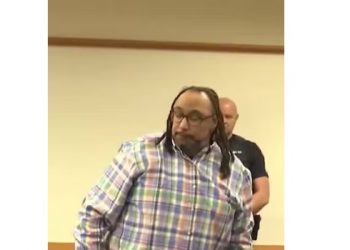Blount County, Tenn. — A controversial legal outcome has stirred frustration and anger among parents and community leaders after a former Blount County Schools teacher, Joseph Dalton, was sentenced to probation following a guilty plea for offensive touching of students. The case, which has prompted protests and calls for legal reform, has raised significant concerns regarding the adequacy of the justice system in addressing such incidents.
On April 30, Dalton, who had worked as a teacher in Blount County, was sentenced to six months of supervised probation under judicial diversion after pleading guilty to five counts of misdemeanor assault by physical contact. The sentence includes conditions such as undergoing a psychosexual evaluation and complying with any subsequent recommendations. If Dalton successfully completes these requirements, the case may be expunged from his public record, effectively erasing it from legal view.
The decision has drawn sharp criticism, particularly given the nature of the allegations. Dalton’s actions were described as inappropriate physical behavior towards students, including tickling, hugging, and in one disturbing incident, placing a student on the ground and standing over them for an extended period. While the charges did not meet the legal criteria for sexual battery, Tennessee law defines the crime as involving contact with the “intimate parts” of a victim, which was not substantiated in the evidence presented.
However, Blount County District Attorney General Ryan Desmond explained that despite a lack of clear evidence for sexual battery charges, Dalton’s conduct remained troubling and fit within the broader legal definition of “assault through offensive touching.” Desmond’s office, along with local leaders, has raised concerns about the leniency of the sentence, particularly in light of Dalton’s history of similar allegations.
Documents obtained by 6 News revealed that Dalton had been previously investigated for other incidents involving inappropriate behavior, with one such case dating back to 2005. Despite these earlier allegations, charges were not pursued, citing insufficient evidence to prove sexual gratification in the incidents.
The public’s reaction to the sentencing has been intense. Several parents and residents gathered outside the Blount County Courthouse to protest, voicing their disapproval of the probationary sentence. One mother, whose child was allegedly victimized by Dalton, expressed her deep dissatisfaction, stressing the importance of holding educators to a higher standard to protect students.
Blount County Mayor Ed Mitchell, along with other community leaders, has called for changes in state laws to ensure that similar cases result in stronger penalties. “We need to do more to protect our children,” Mitchell said, echoing the sentiments of many who feel the punishment does not match the severity of Dalton’s actions.
Adding to the controversy, Dalton’s teaching license remains active. A spokesperson for the Tennessee Board of Education confirmed that the board is reviewing the case, stating that all relevant information from the court proceedings would be considered before making any decisions regarding potential actions on Dalton’s license.
The case has sparked a broader discussion about the need for stronger safeguards in schools and more stringent consequences for educators found guilty of misconduct. While some argue that the judicial system has failed to deliver justice, others point to the complexity of the case and the difficulty of prosecuting offenses where evidence is lacking.
As the community grapples with the outcome, the conversation continues about how best to protect children in educational settings and ensure accountability for those entrusted with their care. The case has highlighted gaps in legal frameworks and raised questions about whether current laws are sufficient to address the full scope of inappropriate conduct in schools.
The debate is far from over, and many are calling for state lawmakers to take action in response to the public outcry. For now, the focus remains on whether Dalton’s teaching career will be impacted further and how the justice system will evolve in handling such cases in the future.













